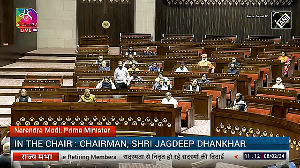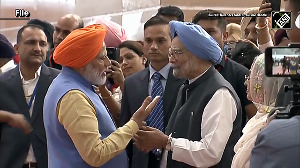The study claims that from its peak of 18 per cent of gross domestic product in 2008, the crony capitalists' wealth is now down to three per cent

With the government taking several measures to clean up the system, the wealth of “crony capitalists” in the country has dipped, according to a study by The Economist.
The study claims that from its peak of 18 per cent of gross domestic product (GDP) in 2008, the crony capitalists’ wealth is now down to three per cent. Its index on crony capitalism across the world is based on work by Ruchir Sharma, the head of the emerging markets teams at Morgan Stanley Investment Management, and Aditi Gandhi and Michael Walton of Delhi’s Centre for Policy Research, among others.
It uses data on billionaires’ fortunes from rankings by Forbes. Each billionaire is labelled as a “crony” or not, based on the industry in which they are most active. It also compared countries’ total “crony” wealth to their GDP.
The Economist said the crony index is the idea that some industries are prone to “rent seeking” - when the owners of an input of production, land, labour, machines, or capital, extract more profit than they would get in a competitive market.
Cartels, monopolies and lobbying are common ways to extract rents. Industries that are vulnerable often involve a lot of interaction with the state, or are licensed by it: for example, telecoms, natural resources, real estate, and defence.
India Inc has successfully managed to stop foreign direct investment in several sectors, including insurance and defence, and later made huge capital gains by selling their stake to foreign companies once the sector was opened up.
The good news is that the crony capitalism across the world is shrinking, but developing countries still account for 65 per cent of global crony capitalism.
Russia tops the list, followed by Malaysia and the Philippines.
In its latest edition, The Economist says a slump in commodity prices has wiped off the balance sheets of several mining tycoons across the world. At the same time, the Indian government has taken a tough stance on graft.
The central bank, too, has prodded state-owned lenders to stop ever-greening loans given to Indian promoters such as Kingfisher Airlines promoter Vijay Mallya, who left India after banks moved the Supreme Court to recover their debt worth Rs 9,100 crore (Rs 91 billion).
The vast majority of Indian billionaires’ wealth is now from open industries such as pharmaceuticals, cars and consumer goods.
The pin-ups of Indian capitalism are no longer the “pampered scions of its business dynasties, but the hungry founders of Flipkart, an e-commerce firm”, it said. India is ranked ninth in the listing of billionaires’ wealth to GDP index.
The National Democratic Alliance government came to power in 2014 on promises that it would take steps to curb crony capitalism in India. But soon the Congress vice-president Rahul Gandhi termed Modi’s government as “suit-boot ki sarkar”, or the government of those who wear suits and boots, that is, rich industrialists.
Photograph: Reuters












 © 2024 Rediff.com -
© 2024 Rediff.com -